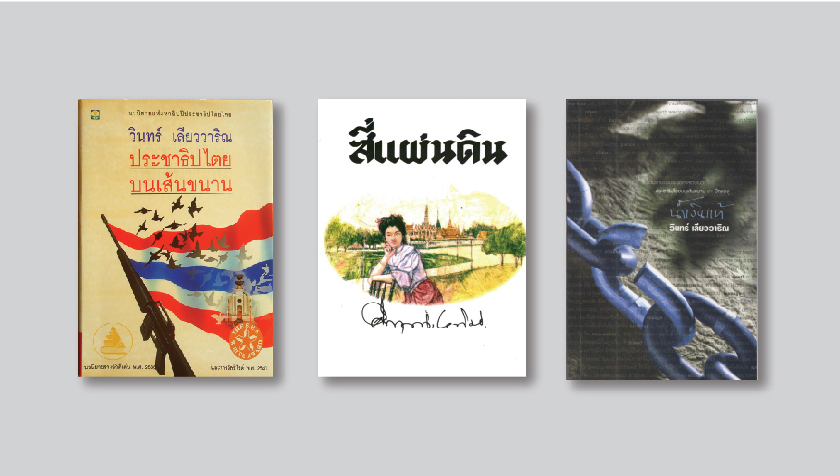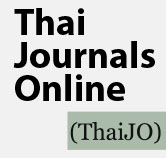
กบฏบวรเดชในนวนิยายอิงประวัติศาสตร์
Boworadej Rebellion in Thai Historical Novels
โดย สาลินี มานะกิจ / By Salinee Manakit
Damrong Journal, Vol 15, No.1, 2016
บทคัดย่อ:
นวนิยายอิงประวัติศาสตร์ในสังคมไทยมักนิยมนำเหตุการณ์สำคัญที่แสดงถึงวิกฤตของชาติมาเขียนเป็นนวนิยาย เหตุการณ์กบฏบวรเดช พ.ศ.2476 เป็นวิกฤตการณ์สำคัญเหตุการณ์หนึ่งที่มีเขียนไว้ใน นวนิยายอิงประวัติศาสตร์ตั้งแต่ทศวรรษ 2490 จนถึงปัจจุบัน บทความนี้มีจุดมุ่งหมายที่จะศึกษาภาพลักษณ์ของกบฏบวรเดชที่นำเสนอในนวนิยายอิงประวัติศาสตร์ รวมทั้งศึกษาปัจจัยที่ส่งผลต่อการนำเสนอภาพของเหตุการณ์นี้ ผลการศึกษาพบว่าภาพลักษณ์ของเหตุการณ์กบฏบวรเดชที่ถูกนำเสนอ มีลักษณะสำคัญ คือส่วนใหญ่แต่งขึ้นผ่านมุมมองจากฝ่ายกบฏ และเลือกกล่าวถึงผลสืบเนื่องหลังจากเหตุการณ์กบฏบวรเดชในแง่ลบ โดยเฉพาะประเด็นเรื่องฝ่ายแพ้ถูกลงโทษอย่างไม่เป็นธรรม อันเป็นผลมาจากการจัดตั้งศาลพิเศษของรัฐบาลและการคุมขังนักโทษการเมือง จนกลายเป็นสาเหตุหนึ่งที่นำไปสู่การสละราชสมบัติของรัชกาลที่ 7 การนำเสนอดังกล่าวนี้สะท้อนให้เห็นความบกพร่องของการปฏิวัติพ.ศ.2475 และความล้มเหลวของคณะราษฎรในการปกครองประเทศ
ปัจจัยสำคัญประการแรกที่ทำให้กบฏบวรเดชถูกนำเสนอในลักษณะดังกล่าว น่าจะเกิดจากอิทธิพลของงานเขียนของกลุ่มอดีตนักโทษการเมืองที่เป็นฝ่ายแพ้ในกบฏบวรเดช หลังจากได้รับการปล่อยตัวบุคคลกลุ่มนี้ได้ผลิตงานเขียนจำนวนมากในช่วงทศวรรษ 2490 ที่บอกเล่าถึงประสบการณ์เลวร้ายที่ได้รับขณะต้องโทษคุมขัง งานเขียนเหล่านี้น่าจะนี้มีบทบาทสำคัญในการสร้างชุดความทรงจำกระแสหลักเกี่ยวกับกบฏบวรเดช ปัจจัยที่สอง คือภูมิหลังของผู้เขียน และปัจจัยที่สาม คือ บริบททางประวัติศาสตร์ขณะผลิตงานเขียน
ABSTRACT:
In Thailand, important events that represent the nation’s crises are usually depicted in historical novels. The Boworadej Rebellion in 1933 is one of those crises and is a popular event featured in Thai historical novels since the late 1940s until present. The purpose of this article is to study the image of Boworadej Rebellion represented in historical novels and the factors that affect its presentation. The study suggests that the images of Boworadej Rebellion are mostly presented from the Rebellion’s perspective and negative impacts are mostly chosen to be portrayed. The unjust punishment inflicted on the rebels arguably derived from the government’s establishment of the Special Tribunal and the imprisonment of the political prisoners, which led to King Prajadhipok’s abdication. This popular topic in Thai historical novels reflects on the shortfall of the revolution and the oversight of the government led by Khana Ratsadon (the People's Party).
The negative representation may have arisen from the fact that the historical novels were written by the ex- political prisoners who had later been released. During the late 1940s these people have produced many writings relating the atrocities of their incarceration. These writings might have played an important role in building the mainstream collective memory of the Boworadej Rebellion. The second factor might be the writers’ personal backgrounds. The third is the historical context in which the novels were written.











